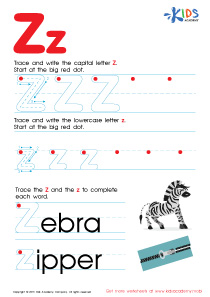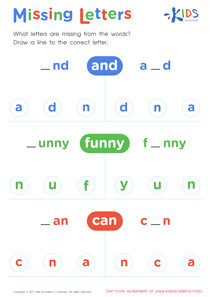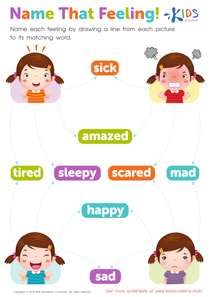Letter recognition Extra Challenge Letter Recognition Worksheets for Ages 4-6
7 filtered results
-
From - To
Introducing our "Extra Challenge Letter Recognition Worksheets" tailored for children ages 4-6! These engaging and interactive worksheets are designed to enhance letter recognition skills while providing an extra layer of challenge for young learners. With a variety of fun activities, kids can explore uppercase and lowercase letters, trace and identify letters in various contexts, and boost their phonetic awareness. Ideal for preschoolers and kindergarteners, these worksheets not only promote literacy but also foster critical thinking and problem-solving skills. Perfect for teachers and parents looking to support their child's early education, our worksheets make learning the alphabet exciting and effective!


Letter R Tracing Page


Letter X Tracing Page
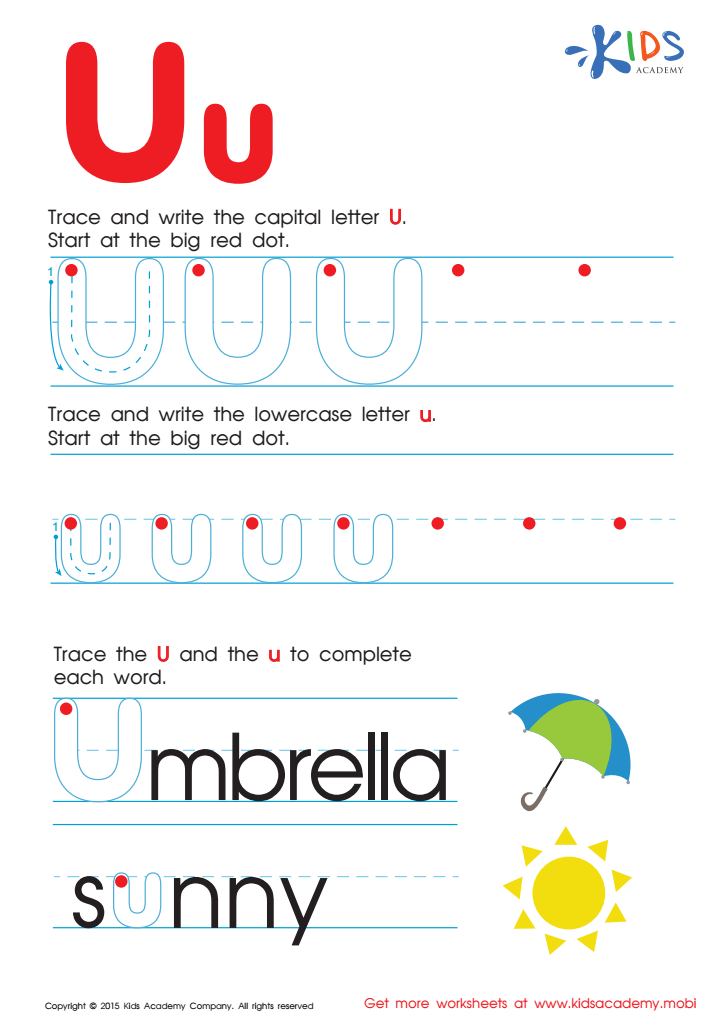

Letter U Tracing Page
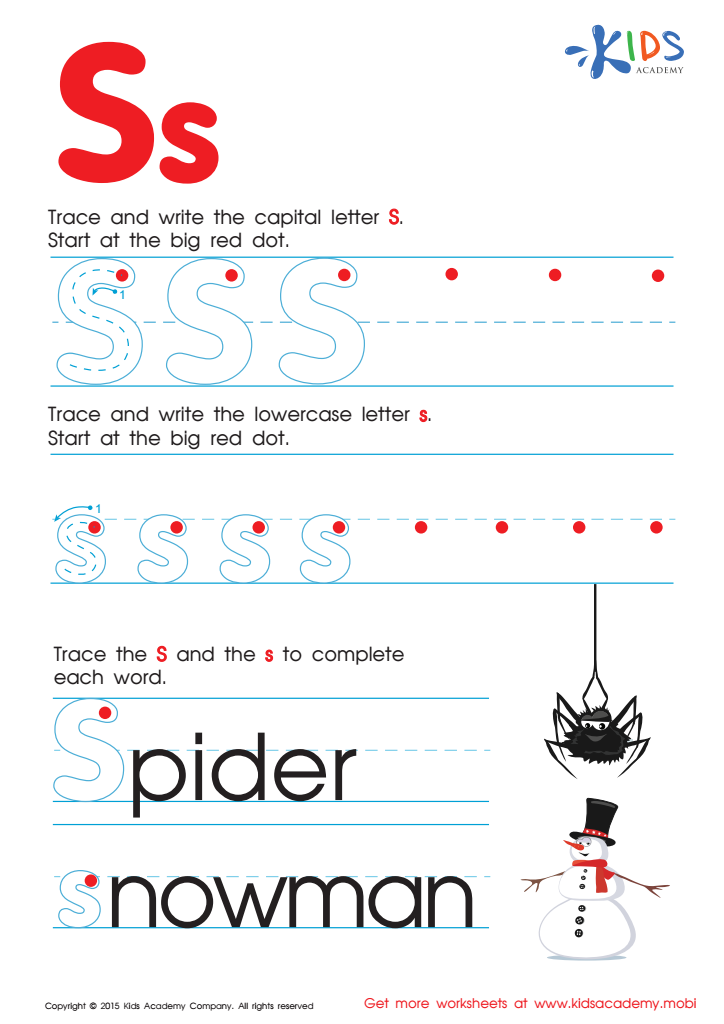

Letter S Tracing Page
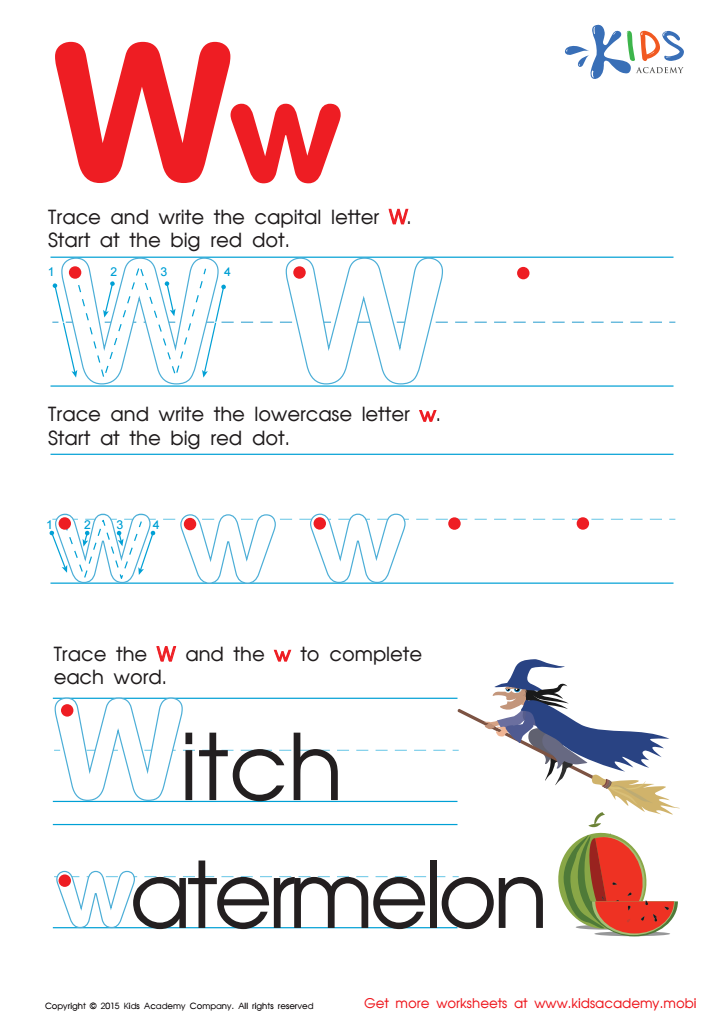

Letter W Tracing Page
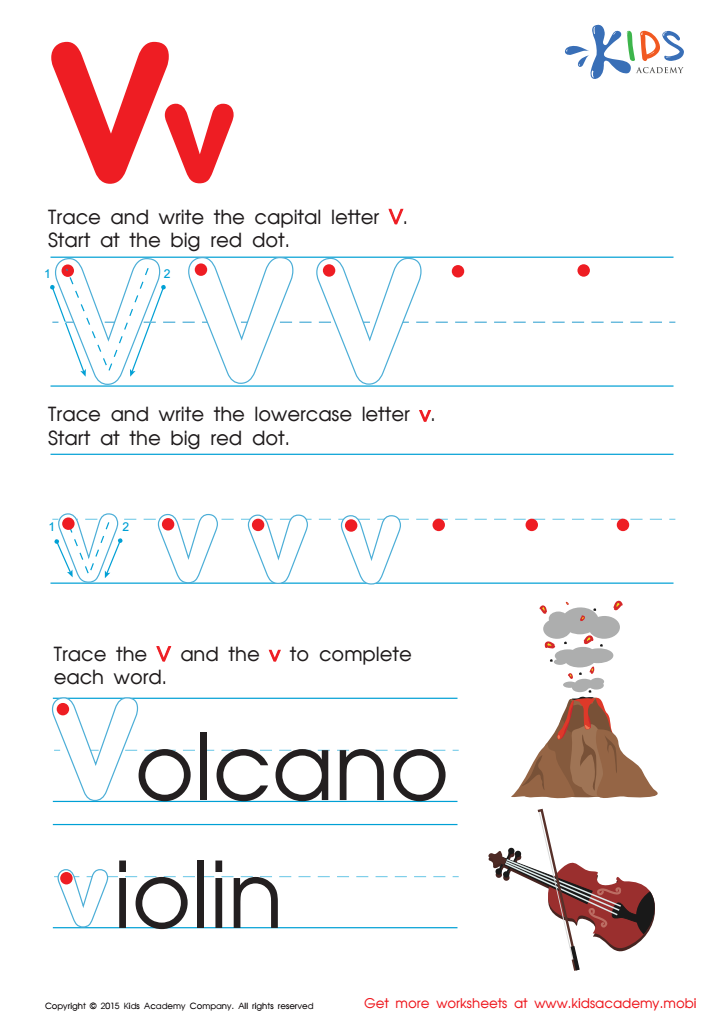

Letter V Tracing Page
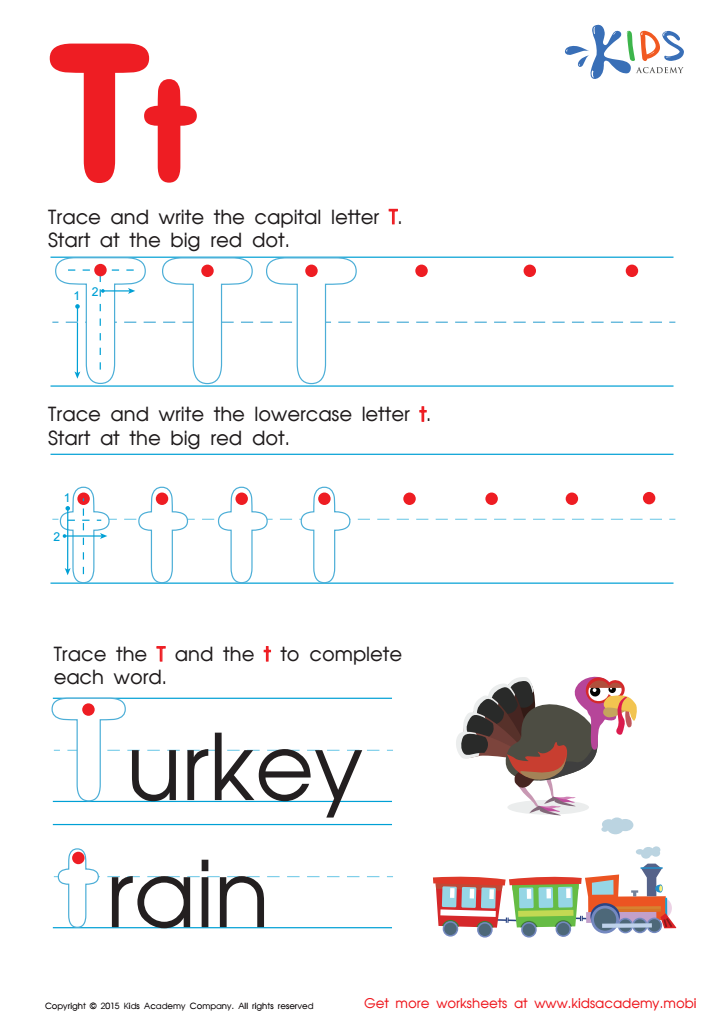

Letter T Tracing Page
Letter recognition is a fundamental skill for young learners, laying the groundwork for reading and writing. For children ages 4-6, mastering letter recognition is crucial as it directly impacts their literacy development. Parents and teachers should prioritize this skill because it enhances phonemic awareness, which supports the understanding of how letters correspond to sounds.
Early exposure to letter recognition helps children develop confidence in their reading abilities, fostering a love for books and storytelling. It also prepares them for more complex literacy tasks, such as decoding words and eventually reading fluently. Engaging children in extra challenges, like fun letter games or playful activities, can make learning enjoyable and memorable.
Furthermore, letter recognition influences academic performance beyond reading. Strong literacy skills are essential for success in other subjects. Teachers and parents play a vital role in creating a supportive environment where young learners can practice and explore letters creatively. By investing time in these early literacy skills, adults can nurture a generation of confident readers. Ultimately, supporting children in their letter recognition journey equips them with the tools they need for lifelong learning and effective communication.
 Assign to My Students
Assign to My Students












